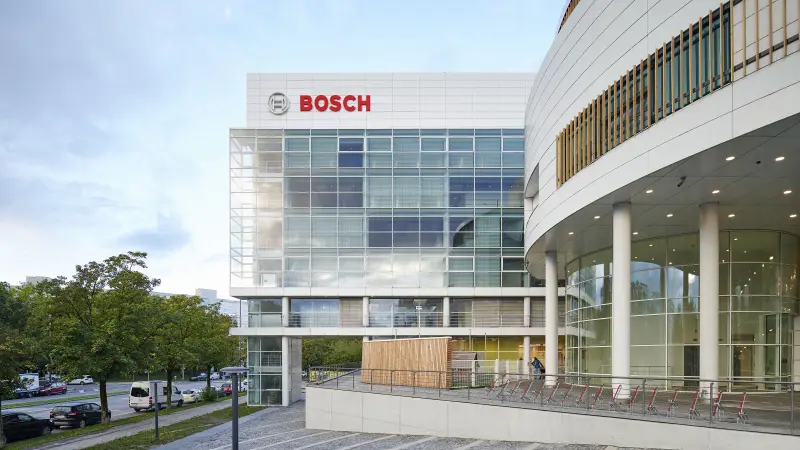The world's largest car parts supplier, Bosch is poised to transform its manufacturing facility in Roseville, California, with a substantial $1.9 billion investment aimed at producing silicon carbide (SiC) power semiconductors, a critical component for electric vehicles (EVs) and clean energy technologies. The move is set to create up to 1,700 new jobs, including 1,000 construction roles and 700 positions in manufacturing, engineering, and research and development.
The investment is supported by a $225 million funding package from the U.S. Department of Commerce, facilitated by the CHIPS and Science Act, which was enacted to strengthen U.S. semiconductor production. Additionally, Bosch is expected to receive approximately $350 million in government loans for the project. This funding will help Bosch’s Roseville facility produce SiC power semiconductors, with production slated to begin in 2026 using 200mm wafers.
Governor Gavin Newsom expressed enthusiasm about the project, highlighting California’s leadership in semiconductor innovation and the role of this investment in ensuring the state remains at the forefront of technology advancements. “Thanks to the Biden-Harris Administration, this latest investment in the state’s semiconductor sector will ensure that federal dollars spur more private capital, bolstering California’s semiconductor manufacturing capabilities,” Newsom said.
Bosch’s Roseville expansion is a significant step toward meeting growing demand for SiC chips, which are essential for the automotive, telecommunications, and defense sectors. These chips are critical in improving the energy efficiency of EVs, enhancing both driving and charging performance. The company’s planned investment also comes in the wake of the disruption in global semiconductor supply chains, exacerbated by the COVID-19 pandemic.

The Roseville facility’s transformation follows Bosch’s acquisition of key assets from TSI Semiconductors in 2022 and aligns with the company's strategy to bolster domestic semiconductor production. Once fully operational, Bosch’s Roseville facility is expected to account for over 40% of all U.S.-based SiC device manufacturing capacity.
Paul Thomas, President of Bosch North America, emphasized the local impact of the investment, stating, "The Roseville investment enables Bosch to locally produce silicon carbide semiconductors, supporting U.S. consumers on the path to electrification." The project is seen as vital to advancing clean mobility and expanding the U.S. electric vehicle market, aligning with the country’s broader sustainability goals.

U.S. Representative Doris Matsui, a California Democrat, who helped craft the 2022 CHIPS Act, praised the award to Bosch, calling it essential for the advancement of clean energy technologies, including electric vehicles. "This funding will allow Bosch to build essential components for advances in clean mobility, electric vehicles, and other clean energy technologies," Matsui said in a statement.
As Bosch moves forward with its investment in Roseville, the company is also actively expanding its presence in the U.S. semiconductor market to reduce reliance on overseas production, particularly in Asia. This expansion is a part of a broader push to secure the U.S.'s position as a global leader in the semiconductor and clean energy sectors.
+86 191 9627 2716
+86 181 7379 0595
8:30 a.m. to 5:30 p.m., Monday to Friday
